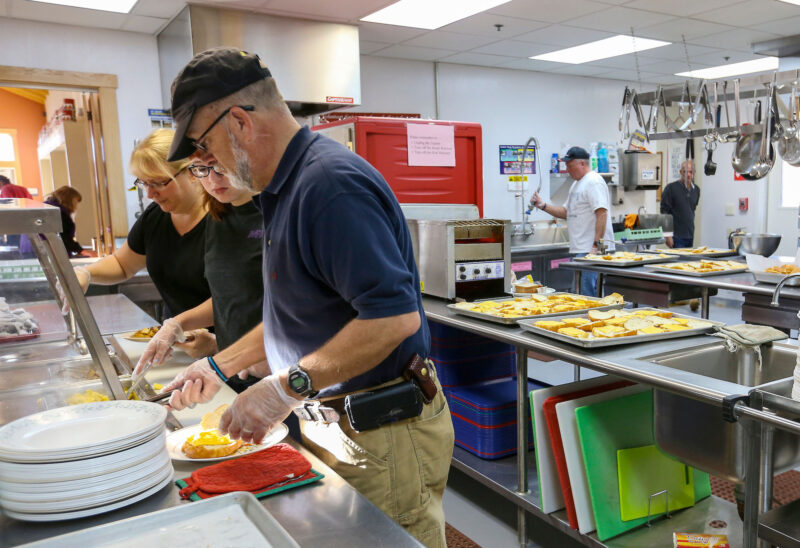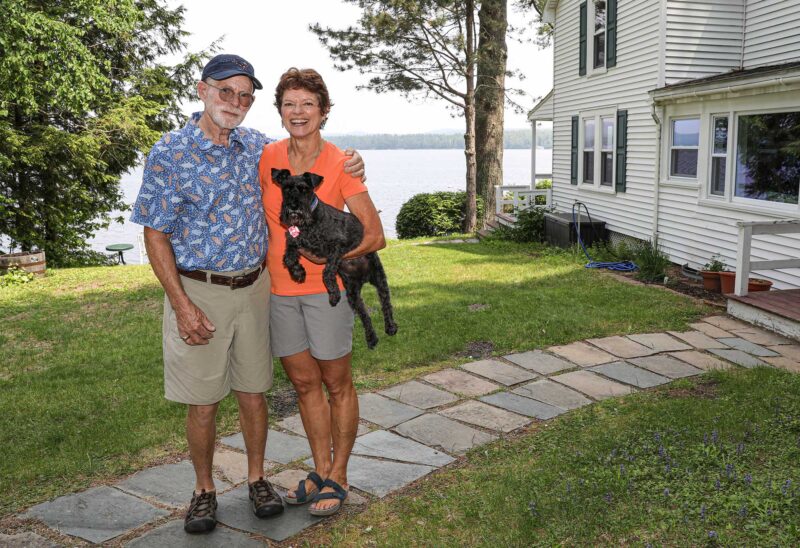It started in 1979, with an empty oil tank and $50.
The oil tank was in the home of a mother and her children, there was snow on the ground and spring wasn’t coming fast enough. The $50 donation bought enough oil to tide them over.
An organization that would come to be named SHARE, and would grow to become a powerful force for good in the communities it served, had begun.
Mariette Facques was the conduit between the family without the oil and the generous donor; at the time she made the connection in her role on the newly-formed Community Affairs Committee of Saint Patrick Church in Milford.
With the combined forces of will and faith, Facques has worked tirelessly — and entirely as a volunteer — to fill such needs in her community.
Today, SHARE is an independent nonprofit with hundreds of volunteers and three staff members. The organization has expanded its facilities, making it possible for the Milford town welfare office and Southern New Hampshire Services’ Fuel Assistance Program to operate under the same roof. SHARE staff help clients to solve problems, reach goals and work back towards self-reliance.
In its last fiscal year, SHARE provided $268,000 in financial assistance to people in Milford, Brookline, Amherst and Mont Vernon. The organization also distributes food, clothing and back-to-school supplies. SHARE does not replace or replicate services provided by town, state or federal agencies, but fills the gaps that those agencies cannot.
“People are basically very good, and they want to help their neighbors out,” Facques said. “But often, they don’t know how.” SHARE provides the help, and the opportunity to help.
Facques said that, along the way, there was a consistent string of what she calls “small miracles.” Someone who worked for a fancy sneaker company handed the Facques a pair of high-end basketball shoes — on the same day that a young girl who could not attend gym class for lack of sneakers needed them. They were exactly her size.
And, she said, she has seen families on both sides of the giving equation. People who were once SHARE donors have occasionally come back as recipients, and vice-versa: Those who have come for help have often come back to pay that help forward during better times.
The New Hampshire Charitable Foundation has provided SHARE with grant money for its works, and helped with technical and organizational assistance.
“They really have been quite an asset for us,” Facques said of the Foundation.
Mariette Facques “retired” as SHARE’s co-director in 2006, but remains active, heading up the organization’s Christmas craft fair. Her husband, Maurice “Moe” Facques, a retired history teacher and basketball coach, is at the SHARE offices every day — working in the food pantry, mowing grass, shoveling snow, taking out the trash.
The Facques created the Facques Family Fund with the New Hampshire Charitable Foundation. The $50,000 invested in the charitable gift annuity enables the Facques to draw income during their lifetimes, a percentage of which is tax-free. Upon their passing, the remainder will become a designated fund for SHARE, which the Foundation will invest and manage for the organization to provide it with ongoing support. Others will also be able to donate to the designated fund.
Meanwhile, SHARE has established an agency fund with the New Hampshire Charitable Foundation, which holds the organization’s long-term assets, and to which others can donate through SHARE.
“We felt comfortable because the goals of Foundation are similar to the goals of SHARE,” Mariette Facques said. “We were comfortable putting our money into the Foundation.” And, the Facques said, the plan made sound financial sense.
Meanwhile, SHARE will continue on: filling empty pantries, making holiday baskets, getting new shoes and warm coats to people who need them, providing emergency gas money, paying for doctor’s visits and prescriptions and heating oil.
The need Mariette Facques saw in 1979 has only grown.
“We’re here,” she said “to help fill the gaps.”

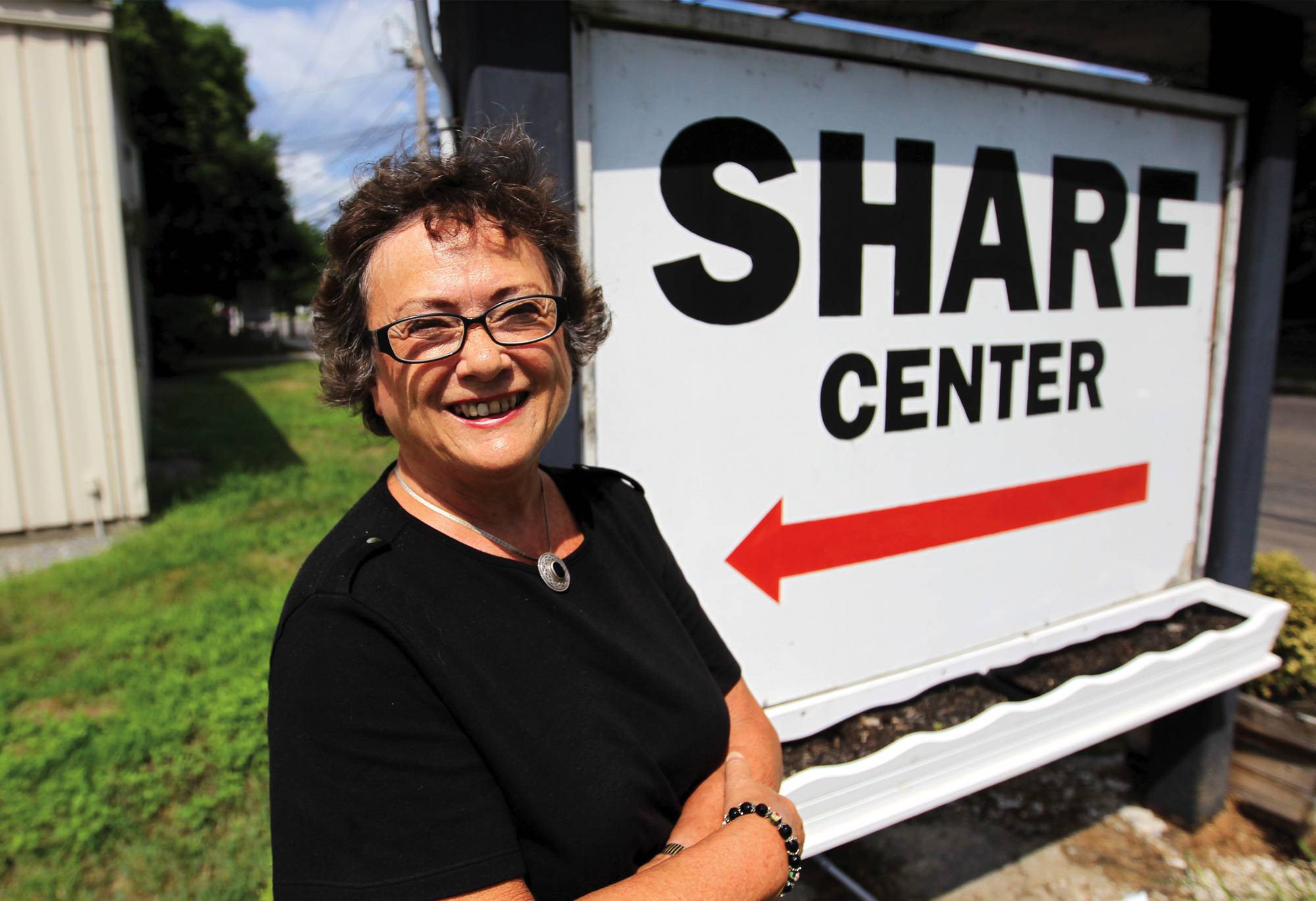






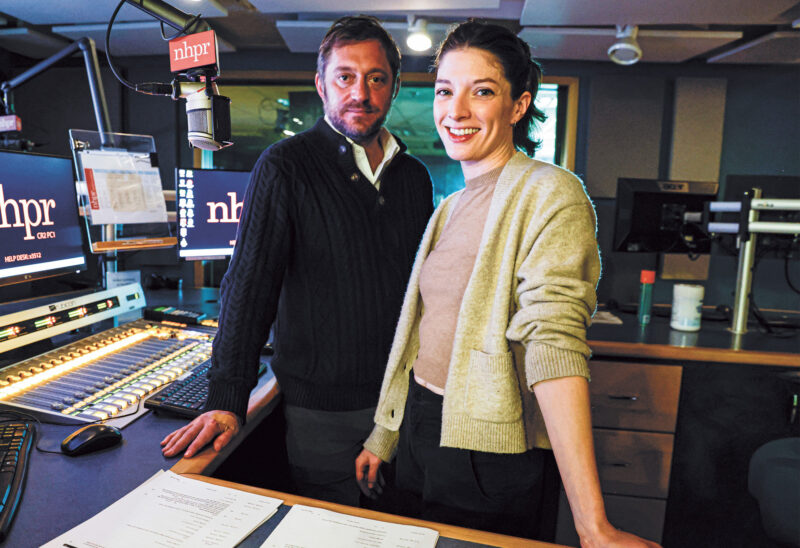
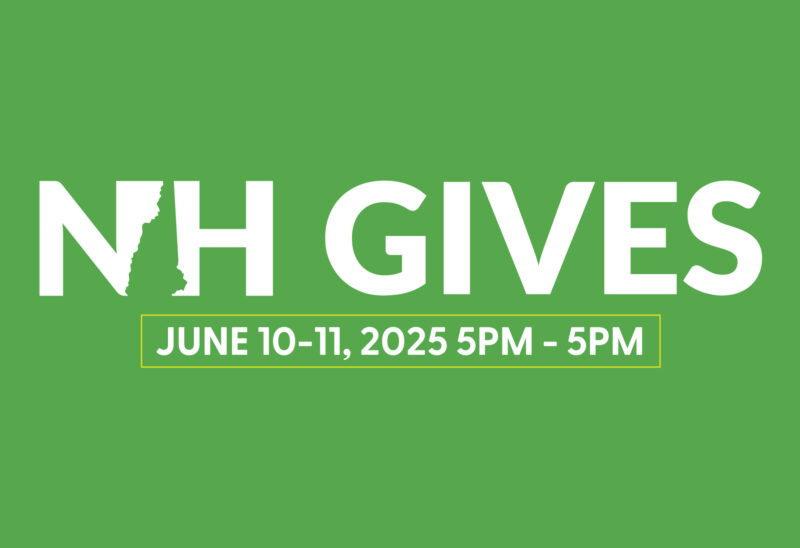
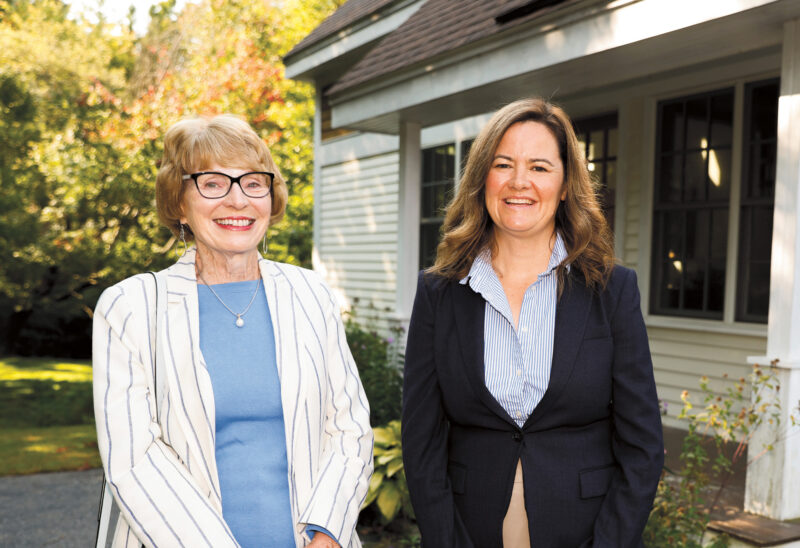

![Oluwakemi Olokunboyo of Dover received a McNabb scholarship to study nursing at Great Bay Community College [Photo by Cheryl Senter]](https://www.nhcf.org/wp-content/uploads/2024/05/Scholarship-Hero-800x548.jpg)
![Indrika Arnold, Senior Wealth Advisor, the Colony Group [Photo by Cheryl Senter]](https://www.nhcf.org/wp-content/uploads/2024/05/Indrika-Arnold-Hero-800x534.jpg)


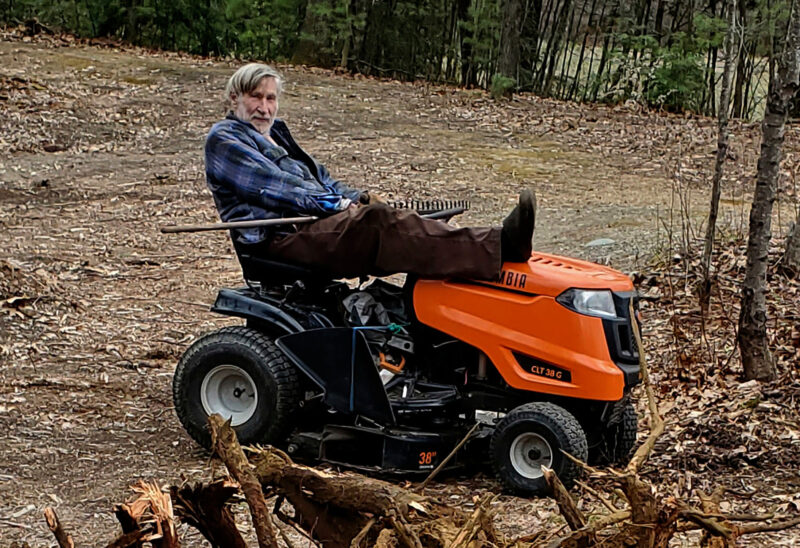
![Charitable Foundation President Dick Ober [Photo by Cheryl Senter]](https://www.nhcf.org/wp-content/uploads/2023/12/dick-ober-purpose-fall-winter-2023-800x548.jpg)
